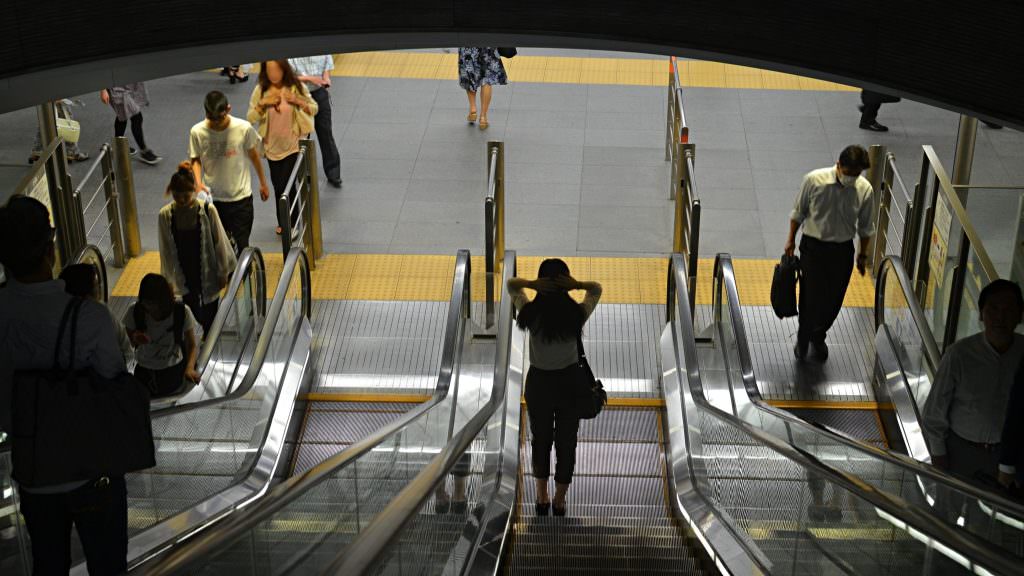When candidates tell you that they do not want to work overtime, or do not intend to commute to the working place for more than 40 minutes on one way, then one shall assume that the “work-life balance discussion” has also reached Japan.
The general understanding is that the term means to find a suitable balance between a person’s professional and private lives. This is a challenge, especially for working parents, married couples or single mothers or fathers.
To combine professional and private commitments is not only important for the well-being of an individual, but also for all other family members and colleagues at work. To stretch it even further, work-life balance is beneficial for companies and society itself.
It is only logical that the more a person works, the less time is available for other activities – like socializing, following a hobby, travelling, eating or even sleeping. Re-charging the battery, i.e. having time to spend for leisure and relaxation, is important for the overall well-being, and brings physical and mental health benefits.
Nevertheless, the question has to be asked if the idea of work-life balance is in line with the Japanese living and working reality.
What Does Work-Life Balance Stand for in Japan?
As I mentioned in one of my last columns: “Speaking with regard to the traditional (employment) system, a still very common viewpoint is that success of a corporation relies on the motivation of its employees and their strong sense of loyalty to and identification with the company.”
This includes the tendency to connect one’s professional destiny with the company and leads to a life-long employment system, seniority-organized working groups and a high amount of overtime.
In Japan, it definitely is a question of socialization and acceptance by society if work-life balance matters will be seen as important for its well-being and not as a degradation of cultural and ethical values.
The trend of Japan becoming an over-aged society combined with low birth rates are threatening Japanese prosperity, and already has triggered discussions how to transform social norms, kick-start gender equality at the work place, and develop reform policies.
Already eight years ago, a work-life balance campaign was launched by the Ministry of Health, Labor and Welfare. It declared 2008 to be the “inaugural year,” from which on social, demographic and labor issues should have been in the focus for change.
Yet the central and most important issue with regards to work-life balance policies and understanding of the matter are the aspects of labor, for example the limitations that parents are facing, particularly women and single mothers.
On second rank, problems of gender equality are in the focus.
The third rank embraces problems of the labor market, the over-stretched habit of working overtime and different working styles and professional attitudes of the young and elderly members of the workforce.
Let me share some of my thoughts on these points with you.
Family Matters
Japanese parents are facing especially high hurdles in bringing together work and family commitments. Habits at the workplace, high living expenses like housing, school and private tutoring center fees, and social norms put young and mid-aged people under pressure.
The results are clearly visible. The marriage age is on arise, parenthood is delayed, and the nuclear family with one child is the given trend.
Japan’s population has started to decline. A fertility rate of 1.4 in 2015 shows the dilemma of the “lowest of the low” fertility countries world-wide. The forecast for 2016 and after is even worse.
 It will be crucial for the government, but also for corporations, to increase childcare policies to strengthen parental employment. The provision of appropriate facilities like yochien kindergardens, hoikuen day and night-care centers, and pre-schools, the reduction of educational costs, the avoidance of private facilities with their business-like approach and long-time waiting lists, selection methods and so on, has to cater to family needs and not be handled as an end in itself.
It will be crucial for the government, but also for corporations, to increase childcare policies to strengthen parental employment. The provision of appropriate facilities like yochien kindergardens, hoikuen day and night-care centers, and pre-schools, the reduction of educational costs, the avoidance of private facilities with their business-like approach and long-time waiting lists, selection methods and so on, has to cater to family needs and not be handled as an end in itself.
Corporate kindergardens also could trigger employer branding and create more attractiveness for potential employees, even if this will only appeal for companies of a certain size and with financial resources.
Women Matter
Shouldn’t it be a general trend in the year 2016 that female employment and career development be treated as a given?! Is it too much to ask for that educated Japanese women would like to make good use of what they have learned and establish a career before thinking of family planning?!
The short answer is YES! Especially in an over-aged society, where all hands have to be on deck to keep and guarantee the living standard and well-being of its members. It is quite surprising how exclusive a society can be which is defining its existence as a homogeneous group. Is it a luxurious habit to exclude or is it an act of foolishness?!
However you may answer this question, it is a practice that once Japanese women re-join the work-force after having left it to care for their children, they normally end-up in part-time, temp-staff and other forms of non-regular employment – mostly being low-paid and over-worked.
Women have to be offered better opportunities when re-entering regular employment. Those who do not have to work to make a living may just stay at home rather than return to low-quality employment.
As long as there is no guarantee that female work-life balance matters are treated as an important factor, the result will be low-birth rates, lower levels of female employment, and even the trend to marry late, or even to avoid it.
This all in a time when Japan needs to challenge the problems of over-aging.
Employment Matters
The vivid problem of how to avoid overtime, long working hours and to make employees taking all their paid vacation is part of many discussions.
The introduction of Flextime Systems could be one solution, income systems nurturing individual results rather than presence a further one, the granting of paid sick leave days another, and an intact company culture not based on habits another one.
Flextime Systems give employees discretion over their hours of starting and finishing work. They also may nurture pro-activity and responsibility. Work can be started and finished based on core time agreements of several hours in the morning and afternoon. Super Flextime Systems with no core time agreements could be customized based on needs as well.
SOHO – small office home office – solutions could offer a reasonable solution as well as soon as the employee does not have to be present at the company every day of the week. The support of evening work would not be appropriate because it may lead again to overtime work.
All of these systems require to be mentioned in the rules of employment and normally a majority labor agreement reached with the employees. There is no necessity to notify the Labor Standards Inspection Office.

A company is expected to pay overtime if employees – unless they belong to management – work over 40 hours a week. If a company intends to use overtime on a regular base, it should reach a written agreement with its employees and submit it to the Labor Standards Inspection Office. The agreement refers to Article 36 of the Japanese Labor Law and should be re-discussed every year.
This agreement also would provide the possibility to set overtime limits based on position responsibilities and requirements. It shall avoid that an employee sits at his desk with nothing to do until the headlights are shut down.
Overtime hours have to be limited to five hours per day, 45 hours per month, and 360 hours per year. There are exceptions in place especially for technical service focused positions. Nevertheless, this shall be done by mutual agreement.
The Japanese Labor Law regulates overtime payment. Just as an example: overtime typically after eight hours of work on a day leads to an extra payment of 25 percent of the hourly base salary, and overtime on weekend and holidays would be at 35 percent of the hourly base salary.
Beyond variable portions of their income, some employees may need the overtime payment as foreign companies in Japan sometimes tend to pay under market standards. To raise the salary up to standard could avoid exorbitant overtime payments. A company culture of leaving in time after the eight hour working day used strictly for work matters, and not socialization, could also solve the problem.
Paid sick leave – in general employees are not entitled to sick leave rights in Japan. Normally, when an employee gets sick, he uses his paid vacation. Some foreign companies grant paid sick leave as a special benefit, but not all.
The Labor Law stipulates the amount of paid vacation based on seniority. The frame here starts with 10 days after a 6-month period belonging to a company and can be added up to 20 days after 6.5 years of working there in a row.
Even it is easy to propose, but to offer paid sick leave to employees, to encourage them to take all their paid vacation, and nurture their focus for work-life balance can strengthen employer branding and create interest of potential employees to send in their resumes.
In case of any questions or remarks please feel free to get in touch!



No comments yet.